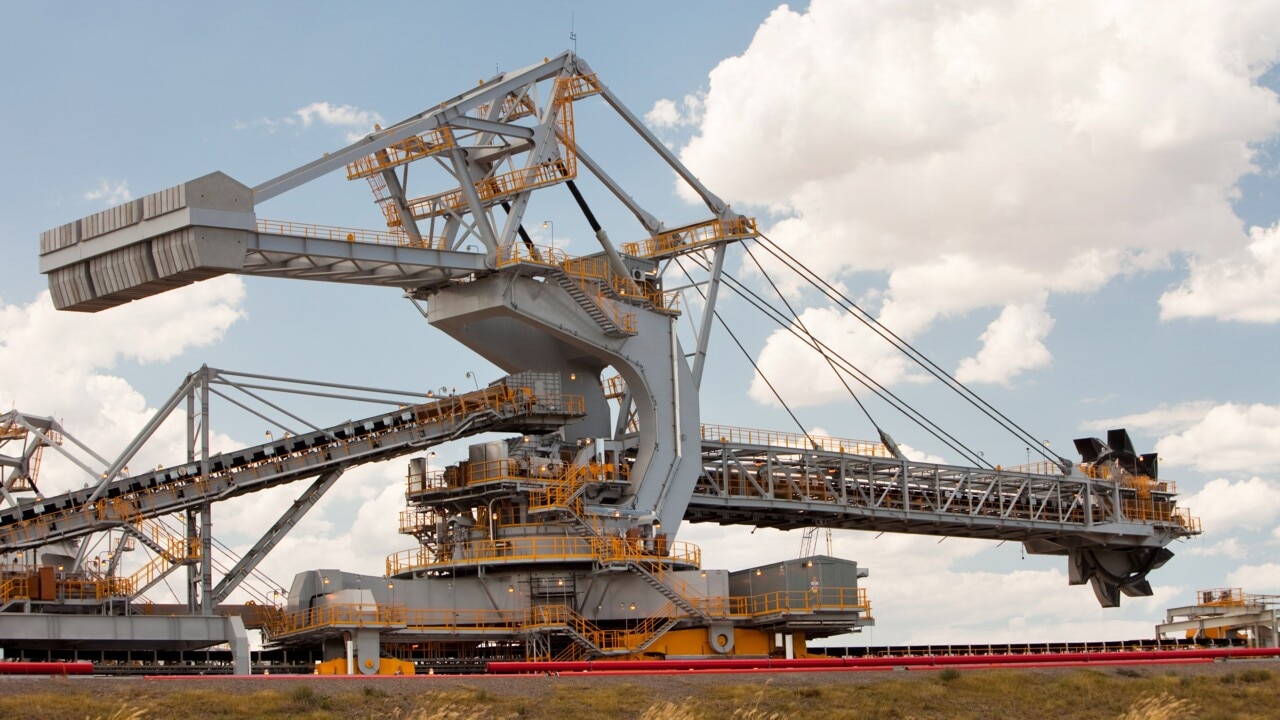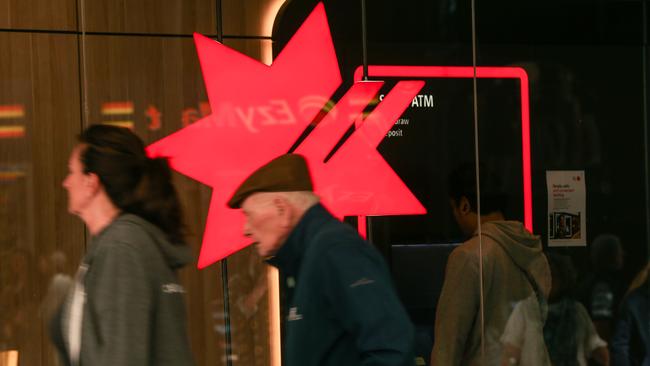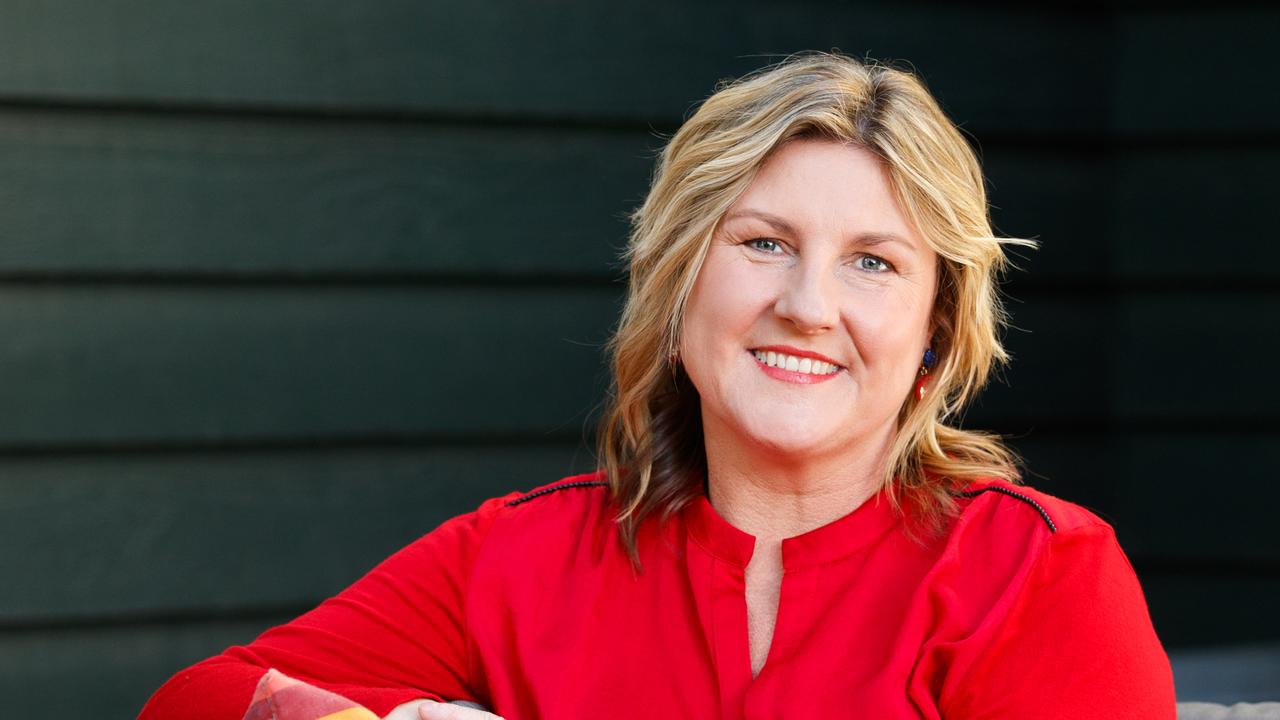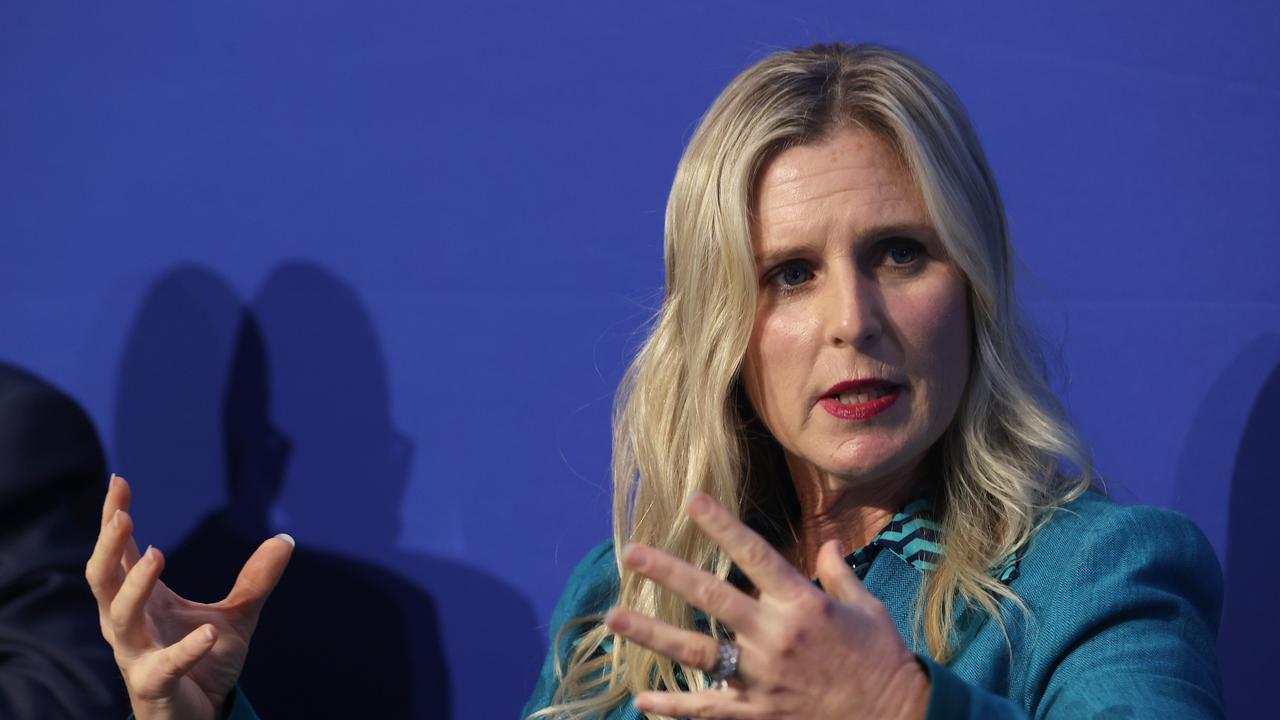Economy to worsen before it gets better: NAB boss
CEO Ross McEwan warns the economy will slow further in coming months, and sees ‘possibly one more move up’ in interest rates ‘at worst’.

Australia’s economy will get worse before it gets better, National Australia Bank boss Ross McEwan has warned.
Mr McEwan said a big number of Aussies were feeling the pinch of much higher interest rates, with national accounts showing the central bank’s aggressive interest rate hikes are having their intended effect of slowing consumption and the economy down.
Speaking at a lunch hosted by the Australian Lebanese Chamber of Commerce on Thursday, Mr McEwan said it was “likely the economy will further slow in coming months as consumers continue to make responsible spending decisions, but we will still have growth.”
“It feels to me that interest rates have reached the top of the cycle, with at worst possibly one more move up. Around mid-next year, we’re looking at rates starting to decline,” he said.
“I am still confident Australia will avoid recession. I believe that towards the end of next year we will be talking about an economy that is growing steadily again. With strong net migration, our natural resources and high levels of employment, we are positioned to rebound quickly.”

Australia has avoided a technical recession, partly thanks to higher immigration and a resurgence of tourism. But some politicians and economists have pointed out the country is now in the middle of a per-capita recession because population growth is outgrowing national GDP growth.
Official data on Wednesday showed GDP growth slowed as the country’s mortgage interest bill doubled to $83bn in the past financial year. The pressure is squeezing household budgets, but Mr McEwan said most of its customers are coping well.
“There has been widespread concern that customers moving from a low fixed rate to a higher variable rate would face significant difficulty. So far, our customers are telling us that they are doing OK.”
Of the 8,600 home loan customers the bank reached out to earlier this year because it considered they were most at risk, only 14 needed help at the time and the numbers remain very low, he said.
“But we also know there are many Australians who are doing it tough in the high inflation environment.”
NAB banks national charities helping vulnerable Australians, such as the Salvation Army and Good Shepherd. Those groups “are telling us that they are seeing a big number of Australians really struggling,” he said.
Mr McEwan welcomed the recent focus of the corporate regulator on hardship support, saying the bank had increased its “assist” team to about 700 people, who were helping 90 per cent of customers in difficulty “back on their feet” within 90 days.
The corporate regulator on Monday sued Westpac, NAB’s larger rival, over alleged failures to respond to hardship requests, and last week took the unusual step of writing to the CEOs of 30 large lenders to remind them of their legal obligations to support customers in financial hardship.
Mr McEwan also used the opportunity to speak about scams that last year cost Australians over $3bn in losses, saying more businesses and individuals are increasingly willing to sacrifice payment speed for better protection against scammers.
“For years, we have had conversations on how we can make things faster for our customers. Payments happen in an instant – our customers expect this,” he said.
“We have seen pushback as bankers ask customers about the purpose of substantial cash withdrawals. But new research we released today suggests both small businesses and personal customers are willing to slow things down.”
The research shows 1 in 2 small and medium-sized businesses said they are “very highly” prepared to sacrifice the time it takes to process a payment if it means more checks and balances from the bank to make payments safer.
Among consumers, about four in 10 consumers said the same, while older Australians said they were willing to trade off speed for safety.
But only 15 per cent of small businesses said they had done enough training to stay across scams, fraud and cybersecurity, while four in ten said they did “not do much training”.
“This is a real worry,” Mr McEwan said. We must increase these numbers urgently.”
“Banks alone can’t solve the growing problem of fraud and scams. It will take a national effort to counter this global organised crime wave. This means government, industry and the community working together to stop the crime before it happens.”
Banks, telcos and social media companies have been increasingly under pressure to help protect Australian’s savings, with consumer groups saying more urgency and investment is needed to come up with better solutions.
Westpac last month launched the first detailed integration of fraud detection systems with its digital payment platforms, which will add “friction” to payments before they are made, requiring customers to answer a number of questions so that an algorithm decides whether to let the payment through or not.
Mr McEwan said NAB had also added “targeted friction” when payments are “out of character” to encourage customers to pause and consider any red flags on where they send money.





